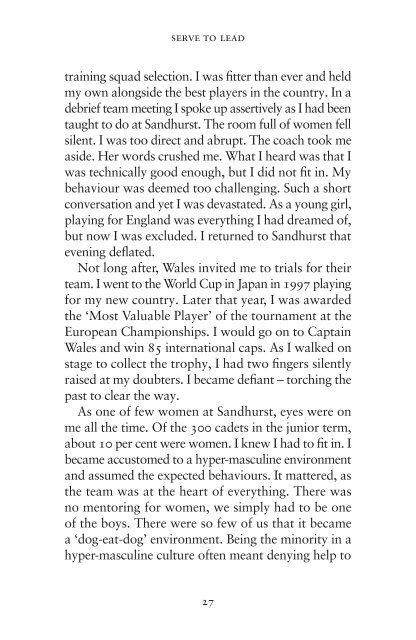Pink Camouflage by Gemma Morgan sampler
Her husband found her by the roadside, delirious and choking on her own vomit. Gemma Morgan was 33, happily married with two young children, an outstanding army service record and a first-class international sporting career. But underneath she was a wreck, surviving on a cocktail of vodka, Valium and sleeping pills. Misogyny, sexual abuse and toxic masculinity had been the daily realities of her Army career long before being deployed unarmed and unsupported to the blood and mayhem of a war zone. Motherhood left her lost and alienated, a soldier who had deliberately suppressed her femininity with no idea how to cope. Together, these experiences triggered a mental health crisis that left her suicidal, battling PTSD, betrayed and abandoned by the institution to which she had devoted seven years of her life. With the support of her family Gemma has since been on a long, hard and bumpy road to recovery. This is her story in her own words. She has told it to inspire others, especially those who have been affected by the toxic and coercive leadership culture that continues to pervade the British Army.
Her husband found her by the roadside, delirious and choking on her own vomit. Gemma Morgan was 33, happily married with two young children, an outstanding army service record and a first-class international sporting career. But underneath she was a wreck, surviving on a cocktail of vodka, Valium and sleeping pills.
Misogyny, sexual abuse and toxic masculinity had been the daily realities of her Army career long before being deployed unarmed and unsupported to the blood and mayhem of a war zone.
Motherhood left her lost and alienated, a soldier who had deliberately suppressed her femininity with no idea how to cope.
Together, these experiences triggered a mental health crisis that left her suicidal, battling PTSD, betrayed and abandoned by the institution to which she had devoted seven years of her life.
With the support of her family Gemma has since been on a long, hard and bumpy road to recovery. This is her story in her own words. She has told it to inspire others, especially those who have been affected by the toxic and coercive leadership culture that continues to pervade the British Army.
Create successful ePaper yourself
Turn your PDF publications into a flip-book with our unique Google optimized e-Paper software.
serve to lead<br />
training squad selection. I was fitter than ever and held<br />
my own alongside the best players in the country. In a<br />
debrief team meeting I spoke up assertively as I had been<br />
taught to do at Sandhurst. The room full of women fell<br />
silent. I was too direct and abrupt. The coach took me<br />
aside. Her words crushed me. What I heard was that I<br />
was technically good enough, but I did not fit in. My<br />
behaviour was deemed too challenging. Such a short<br />
conversation and yet I was devastated. As a young girl,<br />
playing for England was everything I had dreamed of,<br />
but now I was excluded. I returned to Sandhurst that<br />
evening deflated.<br />
Not long after, Wales invited me to trials for their<br />
team. I went to the World Cup in Japan in 1997 playing<br />
for my new country. Later that year, I was awarded<br />
the ‘Most Valuable Player’ of the tournament at the<br />
European Championships. I would go on to Captain<br />
Wales and win 85 international caps. As I walked on<br />
stage to collect the trophy, I had two fingers silently<br />
raised at my doubters. I became defiant – torching the<br />
past to clear the way.<br />
As one of few women at Sandhurst, eyes were on<br />
me all the time. Of the 300 cadets in the junior term,<br />
about 10 per cent were women. I knew I had to fit in. I<br />
became accustomed to a hyper-masculine environment<br />
and assumed the expected behaviours. It mattered, as<br />
the team was at the heart of everything. There was<br />
no mentoring for women, we simply had to be one<br />
of the boys. There were so few of us that it became<br />
a ‘dog-eat-dog’ environment. Being the minority in a<br />
hyper-masculine culture often meant denying help to<br />
27


















